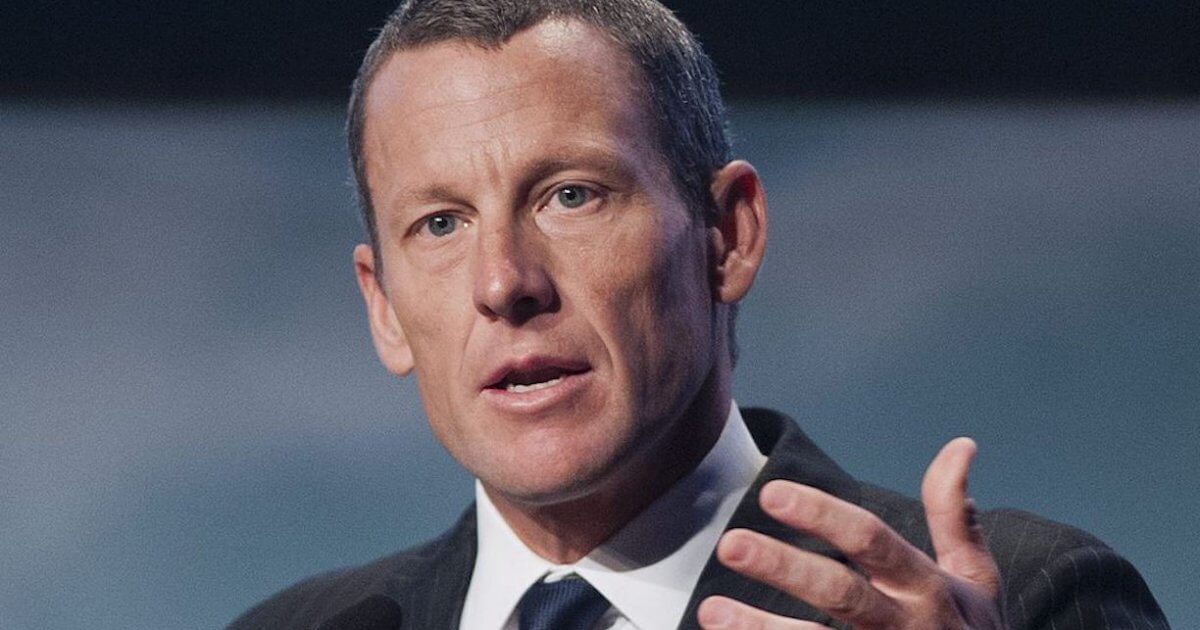His reputation may be permanently tarnished, but Lance Armstrong’s oncologist says few public figures have done more for the cancer community. Armstrong is back in the news as part of ESPN's 30 for 30" documentary series.
Armstrong, who was diagnosed with stage 3 testicular cancer in 1996, was given a 30% chance of survival, says Dr. Craig Nicholas, director and founder of Testicular Cancer Commons. He credits Armstrong with dispelling the myth that men diagnosed with testicular cancer won’t survive to enjoy meaningful lives and father children.
Read More"Shame is an important topic," says Tripp Hornick, a testicular cancer survivor who was diagnosed when he was a 21-year-old college student.
But Dr. Larry Einhorn, distinguished professor of medicine at Indiana University’s Simon Cancer Center, who also treated Armstrong, says the athlete continues to send personal messages of encouragement to cancer patients. “That’s the part of Lance that people don’t know.”
“He Brought Hope, Energy, and Money”
"He brought hope and energy and money for basically a worldwide reform in how we take care of those between age 15 and 40 with cancer," Dr. Nichols said. "I don't think any of that would have happened if he had said, 'Thank you very much. I'll come back for my follow-ups. See you later.'
RELATED: 'Just Go for It Don't Be Scared,' Says Max Taylor, Testicular Cancer Survivor
Convicted of doping, Armstrong was stripped of his seven Tour de France victories (1999-2005), but the disgraced cyclist continues to empower cancer patients. "I've always told Lance … that his legacy will not be his athletic prowess, but what he has done for the cancer community.”
RELATED: Visionary Snowboarder Jake Burton Carpenter Passes Away After Testicular Cancer Relapse
While both doctors watched the ESPN documentary, neither participated in the filming. In it, Armstrong said of his cancer: "The tumor marker was the scoreboard. It was a game to me — but it was a game of life and death."
Did EPO Cause His Cancer?
Although speculation has swirled around whether the performance-enhancing drug EPO caused his cancer, Dr. Nichols said that would have had nothing to do with it. "And plus, it didn't matter," he said. "We just had to get him well, not figure out how he got it."
He is no longer involved with the Livestrong Foundation, he launched in 1997. Although the organization continues to support cancer research and patients, it has undergone extensive re-branding to separate its work from Armstrong.
RELATED: Smoking Marijuana May Increase Testicular Cancer Risk: Study
Livestrong’s mission statement is now about asking the right questions: ” We ask survivors and caregivers what they need, we ask the system how it can be more person-centered, we ask innovators how we can bring impossible ideas to life.”
About Testicular Cancer
Testicular cancer is rare, accounting for about 1% of all male cancers. However, it’s the most common form of cancer in men ages 15-35, according to the Testicular Cancer Society. If caught early, it’s also one of the most treatable cancers with a survival rate nearing 100%. When caught tater, that rate drops to less than 75%."
RELATED: An Incredible Feat Man Runs Marathons in Every Country in the World to Raise Money for Prostate Cancer
"Certain conditions such as undescended testicle(s), abnormal testicular development, and a family history of testicular cancer may increase the odds of developing testicular cancer. But many men who develop testicular cancer have no risk factors at all.
Learn more about SurvivorNet's rigorous medical review process.


